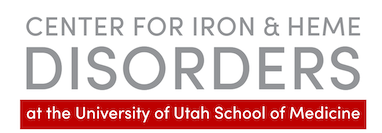The Beaudin Lab in the Division of Hematology and Hematologic Malignancies at the Spencer Fox Eccles School of Medicine at the University of Utah is seeking passionate, motivated, and qualified applicants for a postdoctoral position. Our lab broadly investigates developmental origins of disease susceptibility at the interface of developmental hematopoiesis and developmental immunology, We are seeking a PhD-level candidate with background and interest in developmental immunology and/or hematopoiesis, and additional expertise in mouse models, bioinformatic or multi-omic analysis, and human immunology would be highly desired. Ability to work collaboratively with a highly engaged team is a must. Interested candidates should contact Anna Beaudin (anna.beaudin@hsc.utah.edu) and submit materials online to: https://utah.peopleadmin.com/hr/postings/189683
Post/Doctoral position available at the Eunice Kennedy Shriver National Institute of Child Health and Human Development, National Institutes of Health, Bethesda MD, for a young researcher interested in joining a young and dynamic research group in mammalian iron metabolism, iron sulfur cofactors, iron related neurodegeneration, iron sulfur dependent viral replication, RNA protein interactions and systems biology analysis of iron regulation.
Terms: 24 months, with yearly extensions possible after initial contract. The NIH is dedicated to building an inclusive and diverse community in its training and employment programs.
DHHS, NIH, and NICHD are Equal Employment Opportunity Employers
For further information, contact: rouault@mail.nih.gov.
Postdoctoral Fellow to Elucidate Mechanisms of Ferroptosis
Seeking highly motivated candidates to perform mechanistic studies for the characterization of pathways involved in iron sensing and ferroptosis in cancer cells. PI Dr. Mei Koh’s lab at the University of Utah College of Pharmacy focuses on the identification of new therapeutic strategies that exploit the inflammatory and hypoxic tumor microenvironment within solid tumors. The funded project focuses on the role of Fe-S assembly proteins in driving kidney cancer and modulating sensitivity to ferroptosis.
Candidates must possess a PhD degree in biology, biochemistry, molecular pharmacology or related field. Candidates should have high proficiency in iron metabolism and in general cell biology and molecular biology techniques including cell culture, molecular cloning, western blots, PCR, and cell viability/reporter assays. Experience in cancer cell signaling is desirable but not essential. Experience in animal handling/surgery is desirable but not essential. Candidates should be organized, able to work independently and as part of a team in a highly collaborative research environment. Fluency in English is required. Candidates should be eligible to work in the USA.
Responsibilities include:
1) Perform laboratory experiments, which may include cell culture, molecular cloning, western blotting, PCR, animal handling/surgery, and protein purification.
2) Plan and execute experiments, perform data analysis, have ability to work independently and as part of a team.
3) Present data in group meetings, and at local and international meetings.
4) Contribute to general lab management including supervising lab technicians and students where necessary.
5) Prepare manuscripts.
The University of Utah and the Huntsman Cancer Institute:
Founded in 1850, The University of Utah (the U) is the flagship institution of higher learning in Utah, and offers over 100 undergraduate and more than 90 graduate degree programs to over 30,000 students. As a preeminent research and teaching institution, the University ranks among the top 50 U.S. universities by total research expenditures. Huntsman Cancer Institute (HCI) at the University of Utah is a nationally recognized research center and treatment hospital, and an NCI-designated Comprehensive Cancer Center. HCI and the U are located in Salt Lake City, a vibrant, increasingly diverse and family friendly city; nestled against the mountains of the Wasatch Front, which provide world class skiing, hiking, biking and other alpine activities.
If interested, please send resume, cover letter and the contact information of 3 references to mei.koh@utah.edu.
